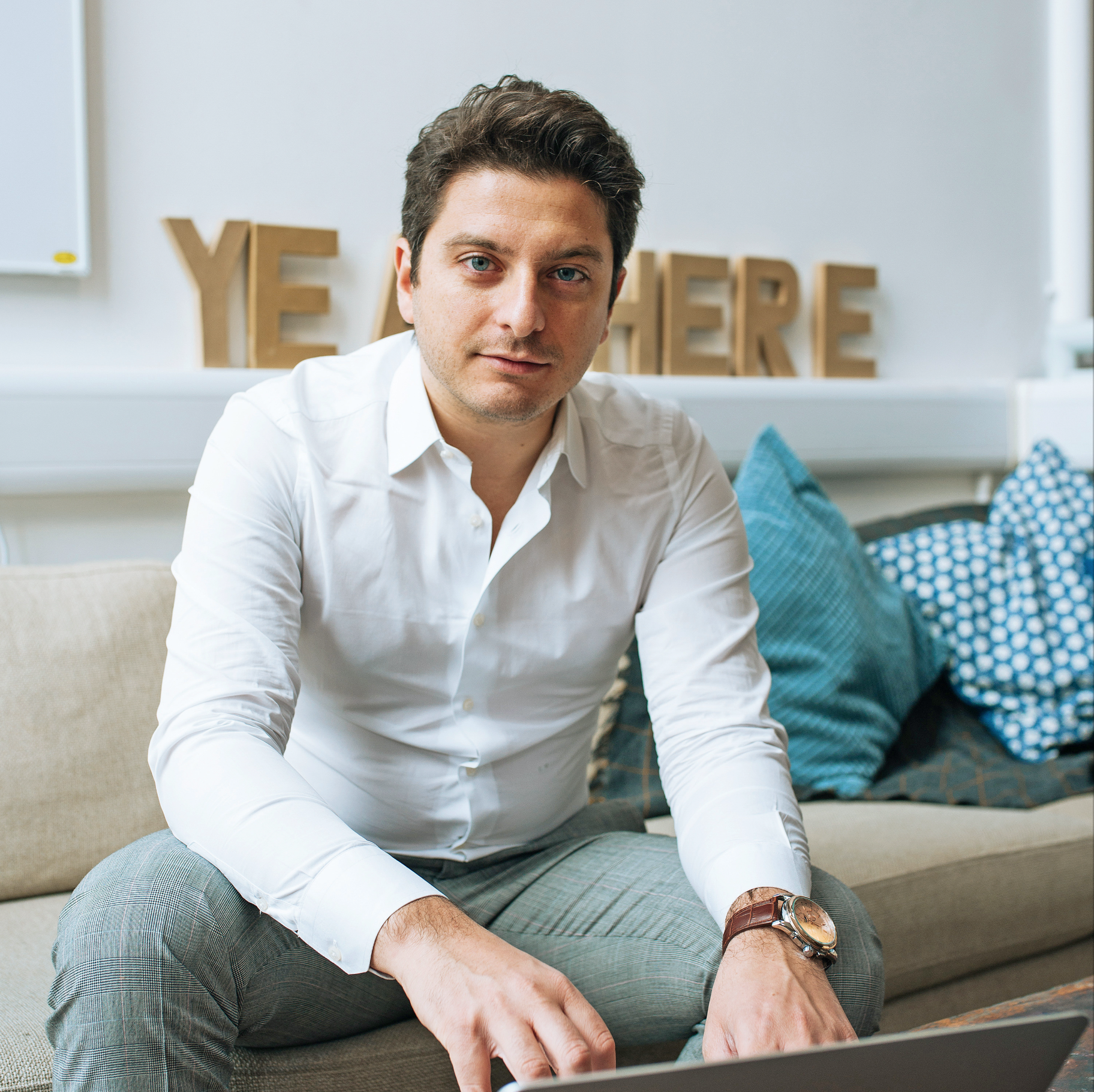1. Please tell us a bit about yourself, both at work and leisure.
At the moment, I am the co-founder and CEO of Coinrule — a smart assistant designed exclusively for cryptocurrency traders. I’dsay lucky, because finding the right people to start a business is probably the most difficult think in life, even harder thanfinding love.
After 15 years of work in several sectors, such as Telco (at Nokia Siemens and Vodafone), Academic Research (MIT, Network Science institute and Harvard) and Fintech /Banking (at Lloyds, UBS, Homeserve, etc.) and after having lived in Finland, USA, Hungary, Italy I finally find the eco-system that fits with my lifestyle: London.
These days, I divide my team between being an entrepreneur at Coinrule and a Mentor at Google Launchpad, Startupbootcamp, and Virgin Startups. Mentoring allows me to give back and also to keep up to date with the latest techniques. It’sa two-way exchange, the best method to learn and let the other learn.
In my free time, I mostly play Tennis. It is an obsession.
2. Which services do you sell and who are your competitors?
We are trying to disrupt the financial world by enhancing automated trading for all.
In fact, Coinrule, is a smart assistant, to enable people that trades crypto currencies, to build trading bots without having to program a single line of code. We let ‘normal’ traders compete with professional traders and hedge funds.
We have few competitors, such as Mudex and Shrimpy, although we are on a good trajectory.
Recently, Coinrule got mentioned as a Must-Have Trading Tools for 2020 on few media outlets together with eToroX, Kraken Futures: https://forex24.pro/cryptocurrency/5-must-have-trading-tools-for-2020-coinrule-etorox-kraken-futures-and-others/
3. How did you get your startup idea and how did you go about launching it?
I was at this Christmas party and I met a guy who said: “Man… I created this algorithm – every day I buy best performing coin, I put $1,000 on it and the next day, I sell it. I’ve done that for one year and I made a 10x”.
He showed me how he did it on IG Index. I was like, “Oh, that’s cool!”.
So I went back home and at night I tried to do the same. Since I’m not a programmer by training, my code is not good enough for building such trading strategies. Therefore, long story short, I didn’t find any tool to do that in a simpler way. And that’s when I started sketching what’s now called “Coinrule”, with a pen and papers.
Then, I was lucky to meet with Oleg, a fellow Mass Challenge Entrepreneur that shared the same passion for crypto. That’s where it all started.
Consequentially, Zdenek, another Mass Challenge startupper also joined as CTO.
Joining forces made the execution and the launch, with such great cofounders, somehow easy.
4. How did you finance your startup, and what learnings would you like to share from the fund-raising journey?
Boot-strapping as much as you can is the new golden rule in the modern venture-building ecosystem. Investor look at that as a proof that you can make it in the long run. Perseverance is important and having magic tricks that multiplies revenues or increase the value of tinyweb development budgets is a key success factor.
After having developed the first MVP and build a decent team of 5 with our own money, around $30kwe went shopping around for investors. Funny enough, even if we are a 100% British company, the investors came from Hungary and Finland.
5. What areas within FinTech do you personally find most interesting and why?
Decentralisation and tokenization will revolutionise the way we manage personal finances as well as the way we buy/sell any assets. Liquidity on certain markets won’t be a problem anymore, as interoperability between many platforms (and blockchains) will be easy.
At the moment the fintech space is like the telecommunication sector few decades ago, when we still had Symbian and few other platforms competing for the samemarket share. Then the iOS and Android duopoly formed and the industry consolidate around those two standards.
The new fintech wave will bring convergence so that all the financial tools – challenger banks and minor blockssolving smaller problems – will be connected within each other seamlessly. Any new tools, not just the updated version featuring PSD2.0/Open Banking/GDPR, will be talking to each other on decentralised blockchains and as well as on more institutional centralised systems.
6. What opportunities do you see for FinTech startups in Europe, and how can we help?
European start-ups are years away from what we see in the US. It is the amount of money injected in innovation that is extremely different, in quality and also in volume.
Europe, the old lady, is still conservative and fragmented. We talk about a continent but in reality the eco-system is divided by countries or at the best, by regions.
London is the only place where it is possible to move fast – incorporating, recruiting, launching, finding support– and eventually leading a successful venture, despite Brexit.
7. What tip would you like to give FinTech entrepreneurs?
Find the way to leave the core product liabilities and risks within third-party providers and at the same time to test your proposition (and MVPproduct) before spending capital in licensing, passporting, building infrastructure.
Nowadays it is possible, so take advantage of all the plug-and-play tools you can find online and mock-up your first product. That’s how I build all my companies. That’s how big names, N26, Tranfewise, etc. started.

